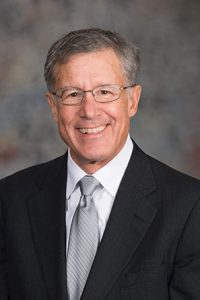Repeal of tax exclusion for non-Nebraska income proposed
The Revenue Committee heard testimony Feb. 13 on a bill that would end an exclusion allowing owners of passthrough companies to avoid paying Nebraska income tax on business income derived from sources outside the state.
The provision applies to corporations formed under subchapter S of the Internal Revenue Code, also called S corporations, and limited liability companies. Income from these companies is passed through to the owner and is taxed on the owner’s individual income tax filings.
Under the current state tax code, Nebraska residents may exclude the portion of their S corporation or LLC income not derived from or connected to Nebraska sources.
LB276, introduced by Omaha Sen. John McCollister, would end the exclusion in 2020. It also would require Nebraska residents who are shareholders of an S corporation or members of an LLC to include their share of the business’ federal income in their Nebraska taxable income.
McCollister said Nebraska’s tax system is “out of balance.” He said it would be appropriate to review the exclusion, which was passed into law in 1987, along with several bills introduced this session that are designed to reduce property taxes.
The state Department of Revenue estimates LB276 would increase state income tax revenue by $85.6 million in fiscal year 2020-21 and $87.3 million in FY2021-22.
Renee Fry, executive director of the OpenSky Policy Institute, testified in support of the bill. She said the exclusion is a “significant deviation” from neutral tax policy that primarily benefits high-income Nebraskans and has not been shown to attract or retain businesses.
“I know that you have all privately been told that people will leave Nebraska if the provision goes away,” Fry said, “but if their primary objective was tax avoidance, they would have already moved to a no-income-tax state.”
Stacy Watson testified in opposition to the bill on behalf of the Omaha and Lincoln chambers of commerce. She said Nebraska’s exclusion, which is meant to ensure that the state taxes business entities such as passthroughs and C corporations in the same way, may be unique. However, Watson said, seven or eight other states use different methods to achieve the same result of only taxing their share of business income.
Also testifying in opposition was Michael Cassling, CEO of an Omaha-based medical imaging company. He said eliminating the exclusion not only would encourage his business and others to move to other states but would discourage startups from locating in Nebraska.
“LB276 would be a loss of people, it would be a loss of jobs and it would be a loss of revenue for the state of Nebraska,” Cassling said.
Bryan Slone, president of the Nebraska Chamber of Commerce and Industry, also testified in opposition. He agreed that LB276 would deter the small businesses and startups Nebraska needs to grow its economy.
“We need to be in the business of attracting these businesses,” he said. “This legislation goes the other direction.”
Adam Thimmesch, a professor at the Nebraska College of Law, gave neutral testimony on the bill on his own behalf. He said Nebraska’s exclusion is “highly, highly unusual among states.” The vast majority of states tax residents on income derived from outside sources and then give them credits on taxes they pay to other states, Thimmesch said.
The committee took no immediate action on the bill.


